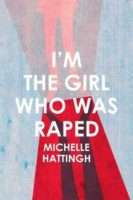I am sending my CV in everywhere and spend my days furiously typing away in coffee shops. It’s the middle of February and I am living in Cape Town again. After spending three months in Port Elizabeth, doing nothing, I realised that I needed to get back to some kind of life. I haven’t heard back from the South Korean recruiters.
I am living in an apartment with Jessica, Ashley and Mackenzie. We’ve been friends since high school. Now, Ashley is in her last year studying medicine at UCT, it’s Jessica’s first year working in marketing and Mackenzie works as a graphic designer. My mom let me move back to Cape Town on one condition – I have to find a job. I am planning on working in a bookshop or someplace to pass the time before I go to South Korea to teach English. We live just off Kloof street with a breathtaking view of Table Mountain. The flat has a living room and small dining area, a kitchen and three bedrooms upstairs. Downstairs, there is a study which we convert into my bedroom. Although the room has a sliding door which leads to a small garden outside, it is tiny and dark. I have to switch on my light even on the sunniest of days. My mom buys me a purple sleeper-couch which I use as a bed, but it’s uncomfortable and hurts my back. The room doesn’t have cupboards so I have to hang my clothes on a rail. It is opposite the kitchen and I can hear every single sound anyone makes. I know whether it is Ashley making tea or Jessica making toast or Mackenzie opening a bottle of wine. I can hear their joyful conversations as I try to disappear into the sleeper couch.
In PE the days passed me by as I stared out the window, glaring at the sun. In Cape Town, every moment is a challenge. Hipsters surround me with their fashionable carelessness, big words and even bigger ideas. They hang around in coffee shops and are always on their way to some new project or friend, while I try to look busy and feel slightly left behind.
I feel stimulated, driven to live more actively. I lap up the air, mountain, sea and inspiration. Every weekend brings something new: a market, an art movie, a show, a restaurant, a club, a drink, a beer, a band. Just walking on the winding road of the Promenade with the waves crashing, feeling the frothing sea foam spray against my skin makes me feel alive.
I’m scared to leave my mom. I’m worried that I might be too emotional for my friends. I worry about becoming even more depressed in Cape Town. But I need to be out there in the world, doing things for myself again, even if they are as simple as doing my own shopping, cooking and laundry.
I don’t feel like my flatmates are just friends. I feel safe with them, and I am allowed to fully live through my emotions. In the afternoons, I’ll be lying on my bed, ready to shut out the world, and Ashley will come jump on me shouting, “Get up!” and I know we have to go for a walk. I have no choice in the matter. It’s what real friends do – they shove you back into the sun when all you want to do is lie alone in the darkness.
Without ever consciously deciding to do it, I spend most of my time writing about being raped. Writing is such an essential part of my sense-making process that I cannot not write about being raped. By putting my words on paper, I feel I can breathe again. I punish the page in a way I cannot punish my rapist. I feel too much and the page curdles with the burden of my emotions. Historian Joanna Bourke says, “By demystifying rape we make rape less frightening and more amenable to change.”
I don’t know if that’s what I’m doing, but it is what I want to do. In South Africa we know a lot about rape. We hear a lot of statistics. We hear a lot of horror stories: a friend of a friend, a girl in town. A neighbour. We read articles in the newspaper that make us angry and sad about the state of our country, and then we go on, because we have to. We can’t stop and be personally affected by every single rape story we hear – we would never get out of bed.
The thing about rape, however, is that it is happening to you and me. We like to pretend that rape happens “out there” in a “blank unknown space”, but it doesn’t. If I could count the number of times my best friends told me that “rape doesn’t happen to girls like us,” I wouldn’t feel the need to demystify rape in the first place.
What is your definition of rape?
Is it narrow: rape is only rape if a stranger physically threatens you into sexually exploitative acts?
Or is it broader: is rape any unwanted sexual act?
While many people, especially women, agree with the broader definition, they find it hard to apply it to their own lives. By now, we all know that most rapes are committed by an acquaintance, but few of us act like this is a reality.


